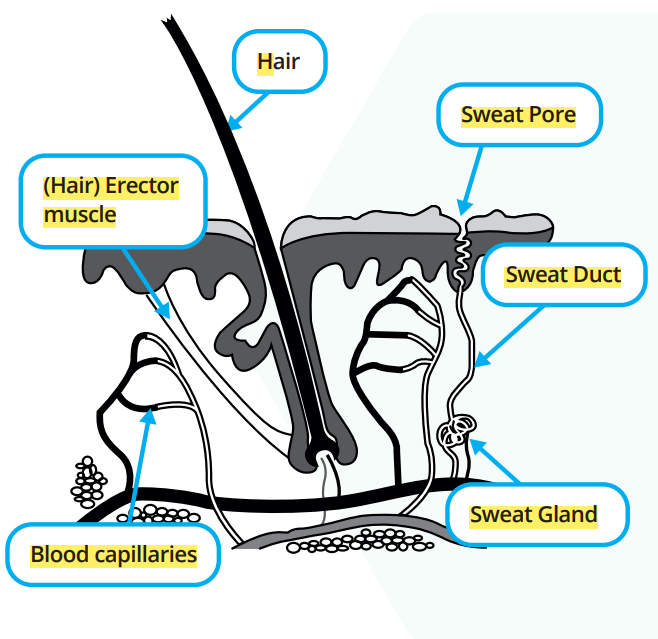Homeostasis (Regulating Glucose + Regulating Temperature)
1/9
There's no tags or description
Looks like no tags are added yet.
Name | Mastery | Learn | Test | Matching | Spaced |
|---|
No study sessions yet.
10 Terms
What is Homeostasis?
Homeostasis is the maintenance of a constant internal environment
What happens when you eat which increases your glucose in the blood?
The Pancreas detects increase and releases the hormone insulin into the blood
Insulin travels to liver and liver turns glucose into insoluble glycogen for storage
Glucose level decreases to normal level
What happens to your glucose levels when you exercise?
Exercising decreases glucose in the blood
Pancreas detects the decreases and releases the hormone glucagon into the blood
Glucagon tells the liver to turn stored glycogen into glucose and release into the blood
Glucose levels in bloods increases to normal levels
What is type 1 diabetes?
The body does not release insulin
What is type 2 diabetes?
The body cells do not respond to the chemical signal from insulin
What are the symptoms of Diabetes?
Glucose in urine detected by a Benedict’s test
Name 3 treatment of Diabetes?
Injecting insulin
pancreas transplants
low sugar/ carbohydrates diet
What happens when the body gets too hot?
The Hairs lie flat
Sweating- A layer of liquid sweat made by sweat glands, carried up by sweat ducts and released by sweat pores onto the skin and evaporates removing heat energy.
Vasodilation- Blood vessels in the skin widen so more heat from the blood is lost to the environment.
What happens when the body gets too cold?
Hairs stand on end to trap a layer of insulating air over skin reducing heat loss
Shivering- Involuntary contraction of the muscles increases respiration and the release of heat energy.
Vasoconstriction- Blood vessels in the skin get narrower so less heat is lost from the blood to the environment.
What is the labels on a hair during regulating temperature?
